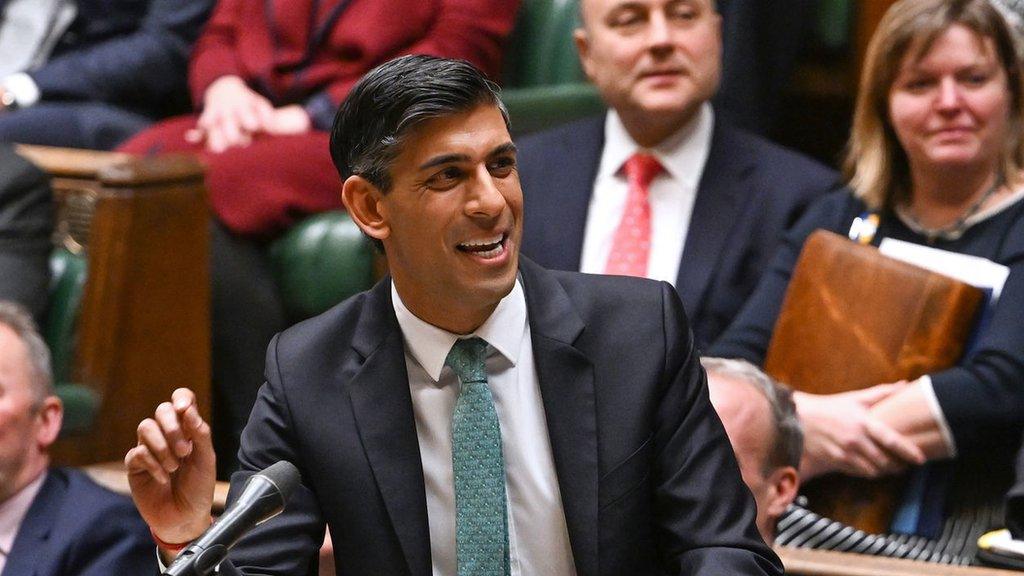Asylum backlog rises to new high, figures show
- Published
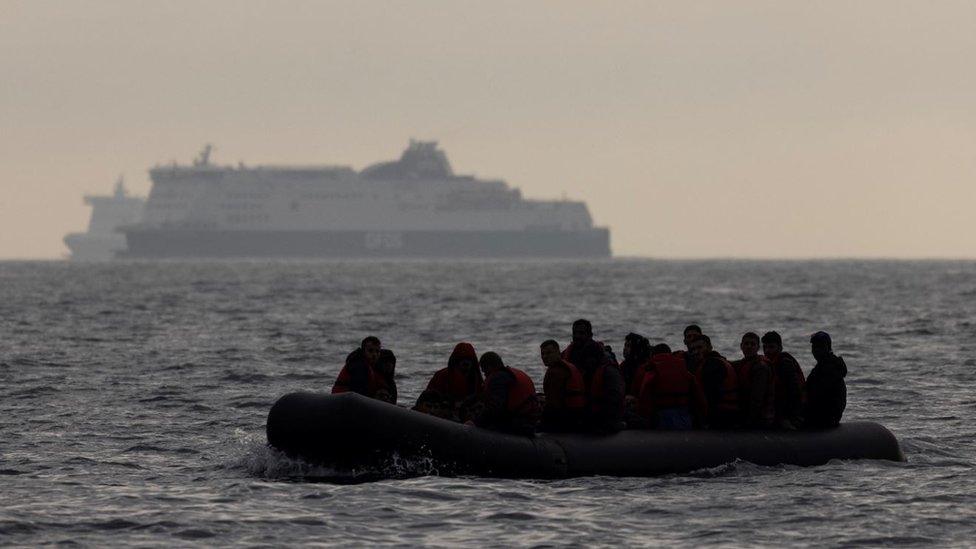
The number of asylum seekers in the UK awaiting an initial decision on their case has climbed to a new record high.
Latest Home Office figures, external show the backlog had risen to 172,758 at the end of March, despite government promises to bring it down.
The number of asylum seekers waiting longer than six months for a decision now stands at 128,812.
Labour said there had been "no action at all" to lower the backlog and make sure claims are properly processed.
But Downing Street said measures it had introduced to tackle the number of unresolved cases would "take time to bed in".
It comes as net migration - including asylum seekers, as well as people moving to the country for work or study - hit a record 606,000 last year.
Rishi Sunak has made it a priority to reduce the increasing number of people crossing the English Channel in small boats.
'Pull factor'
As part of his plans to tackle the issue, he has set a high-profile promise to clear the backlog of "legacy" asylum cases lodged before a law change in June 2022 by the end of this year.
When he made the pledge in December, this number of cases stood at 92,601.
But the latest figures reveal it had only reduced to 78,954 cases by the end of March, suggesting the prime minster faces an uphill task to meet the target.
Despite this, Immigration Minister Robert Jenrick said he expected the target would be met, adding the government had put in place a "series of measures" to get numbers falling.
Speaking in the Commons, he said these included plans to increase the number of officials handling asylum cases, and moves to "reduce bureaucracy, to streamline the process".
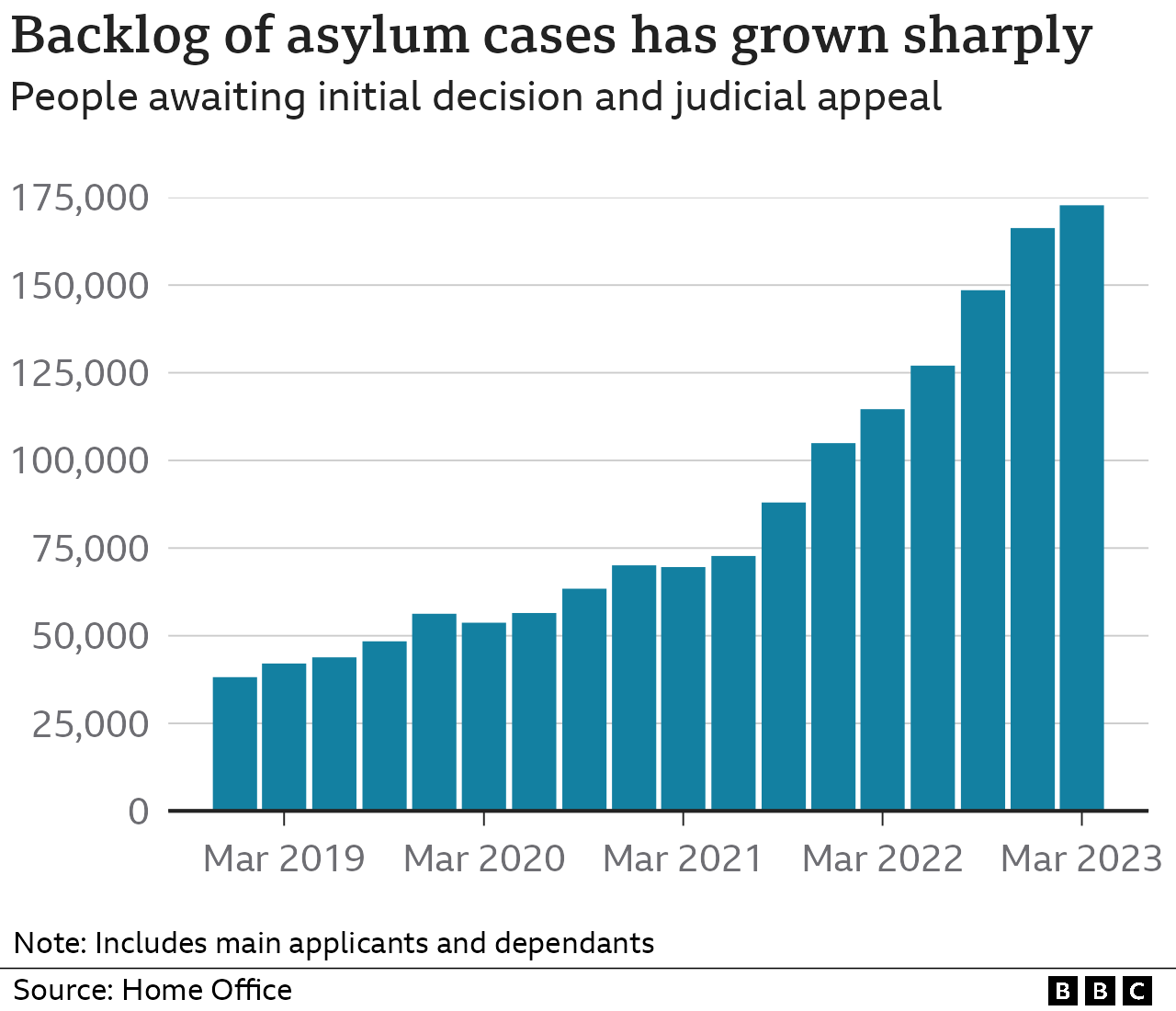
He also suggested that reducing the backlog quickly could create a "pull factor" attracting people to arrive in the UK illegally to claim asylum.
"That is not a reason to maintain an inefficient process, but we need a process where deterrence is suffused through every element," he added.
The comments prompted surprise from opposition MPs, with Labour's Andy Slaughter saying Mr Jenrick needed to "get his story straight".
"Is he saying that he wants to get it down - in which case he is not doing a very good job," he asked. "Or is he saying that he is keeping it high, with all the attendant costs and misery, in order to deter fresh claims?"
'Unacceptable'
As part of its plans to reduce the backlog, the government has announced plans to replace face-to-face interviews with a 10-page questionnaire for around 12,000 asylum seekers from five countries.
The Home Office also says it has introduced caseworker units specialised by nationality, and is digitising the process to speed up case handling.
However, Enver Solomon, chief executive of the Refugee Council charity, said the government was "unlikely" to meet its targets without a "more ambitious, workable and person-centred approach".
Adding that the high number of claims awaiting a decision was "unacceptable," he called for "real commitment and resourcing to tackle the backlog, including "quick and good quality decisions based on the merit of each claim".
Labour has proposed fast-tracking applications from countries designated safe - a list including countries like India and Brazil as well as Albania.
In December, the party said this would mean "clearly unfounded" cases could be decided quickly as a way of clearing the backlog.
It has not provided detail of how their scheme would wok, but says it would be based on similar schemes in Germany, Switzerland and Sweden.
- Published23 February 2023
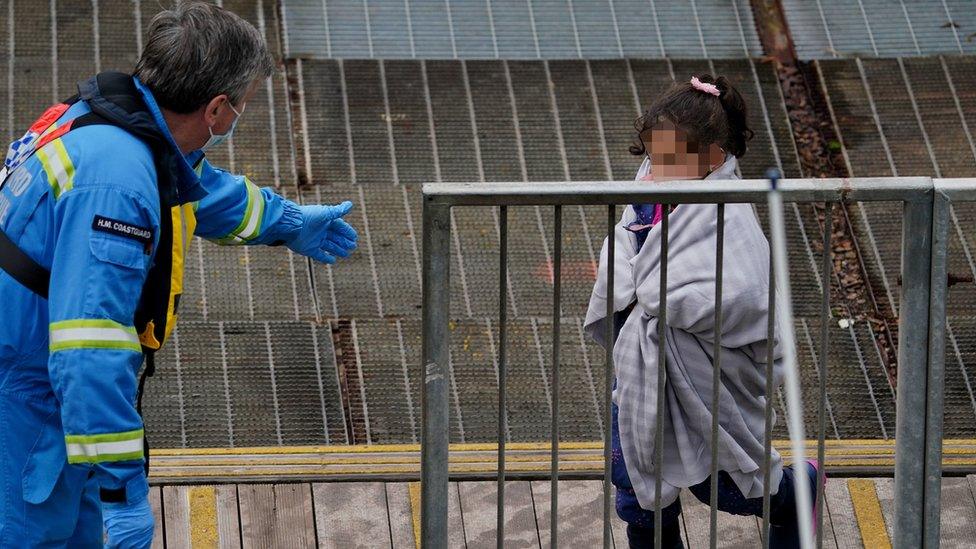
- Published23 February 2023
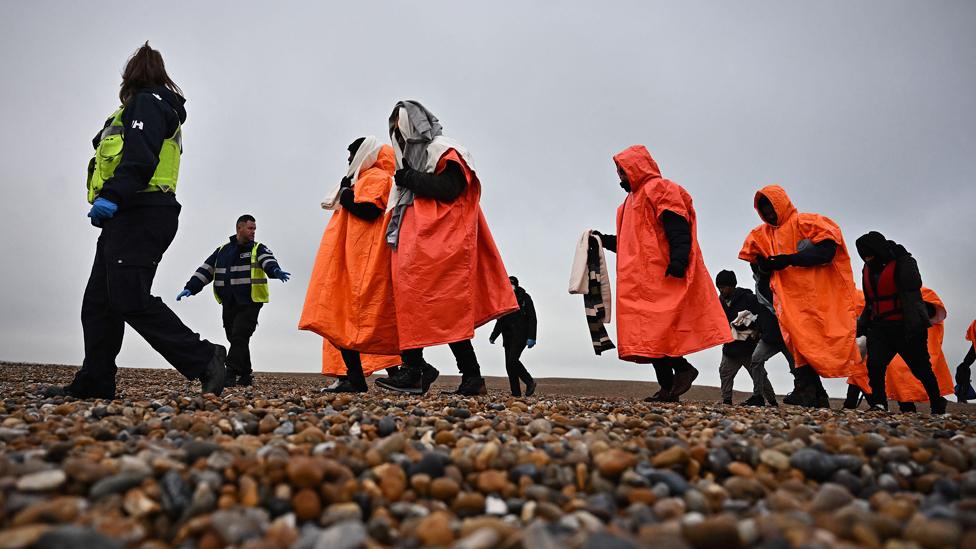
- Published4 April 2023
